Whenever the UFC arrives in Brazil, especially when the arbitration controversies gain more prominence than what happened inside the Octagon, the subject of the Brazilian MMA Athletic Commission comes up. But, for many MMA fans, even those who follow the sport closely, this is still an obscure topic, which raises more doubts than understanding.
See too
In the second part of the special SUPER FIGHTS about CABMMA, We have prepared a report for you to clarify the whole story and understand once and for all what the entity is, how it operates and that this is not the only body that operates in mixed martial arts in Brazil.
In the first text, published last Thursday (30), the emphasis was on arbitration, with testimonies from veteran mediators who never had the opportunity to step into the octagon and the “precarious structure of CABMMA” in the formation of new names. You can check on this link.
About the legal aspect
An immediate question when talking about a body that regulates sports is: what is needed to establish it and start its activities? The not very complex list of requirements may surprise those who ask, generating some strangeness and making many ask: “So, can anyone create an entity and request MMA regulation?” The answer to this question is “yes”, at least that’s what the Ministry of Sports says.
“It is not up to the Federal Government to recognize, regulate or standardize the practice of any sporting modality. The legislation guarantees broad freedom of association and organizational autonomy for all modalities. Individuals and legal entities are free to organize the practice of sports. Sports confederations and federations are sports administration entities treated as legal entities under private law, autonomous in relation to the State, just like clubs, sports practice entities”, said the highest sports body in the country, in response to the SUPER FIGHTS.
Despite, according to its own definition, “not recognizing, regulating or standardizing the practice of any sporting modality”, the Ministry of Sports received a visit from members of the Brazilian MMA Altética Commission at the beginning of this year, with the aim of presenting the performance of the entity to Minister George Hilton in a private audience and provide greater legitimacy to the exercise of its activities.
What is an Athletic Commission?
The term Athletic Commission, used to name CABMMA, is derived from its equivalent in English Athletic Commission, nomenclature adopted by North American bodies that regulate the practice of combat sports in the United States and Canada.
However, unlike what happens in Brazil, these are state bodies in North America – including the most famous and recognized among them by MMA fans, the Nevada Athletic Commission (NSAC).
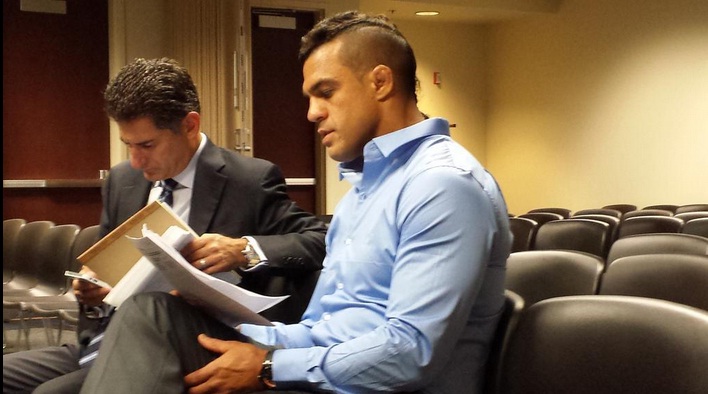
Nevada Commission: known to Brazilians, among other cases, for the trial of V. Belfort. Photo: Reproduction/Twitter
In their origins, these entities were only linked to the regulation of boxing, but nowadays they operate in several combat sports, and were fundamental for the acceptance of mixed martial arts in North American culture and the sanction of the sport, even in the times of "Anything goes".
According to the Association of Boxing Commissions (ABC), the highest body in this matter, the function of these entities is to “regulate all types of disputes or exhibitions of combat sports (referred to by the term 'unarmed combat'), license and supervise their respective athletes, promoters, referees, jurors, businesspeople and matchmakers (responsible for the marriage of fights)”.
In addition to these duties, the Committees are responsible for regulating health and safety procedures, providing accurate information on athletes' records and developing anti-doping programs in order to curb the use of prohibited substances.
What does CABMMA do and who makes up its staff?
As mentioned, CABMMA follows the North American standards of Athletic Commissions, government bodies in the United States and Canada responsible for regulating combat sports in these territories. However, if the actions of the bodies are similar, the Brazilian case has no connection with the State, being classified as a private, non-profit entity.
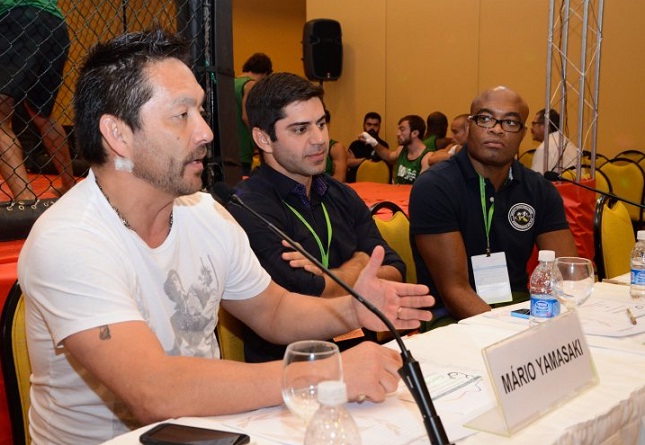
Brazilian referee Mário Yamasaki (left) is coordinator of referees at the Commission. Photo: Disclosure
According to CABMMA itself, the body “was founded with the aim of taking care, mainly, of the safety of amateur or professional athletes, aiming at the safe and organized growth of the sport, following the model of conduct established by the International MMA Federation (IMMAF, entity Swedish) and adopts the ABC rules as a guideline”.
Founded in October 2012, the organization is not the only one of its kind in Brazil, nor does it have a monopoly on sanctioning mixed martial arts in the country. However, he ended up gaining more notoriety for being responsible for regulating UFC cards since then (before that, Ultimate regulated itself on Brazilian soil) and for some of the biggest events on the national MMA circuit.
Currently, CABMMA is chaired by Rafael Favetti, the entity's main institutional leader. Cristiano Sampaio is responsible for Operational Coordination, whose duties are more linked to the activities carried out by the Commission, such as regulation, supervision and approval.
Another important name on the Athletic Commission board is medical coordinator Dr. Márcio Tannure, who also works as a UFC doctor and, allegedly, has treated athletes like Anderson Silva, Vitor belfort e Antonio Pezão.
Tannure's relationship with the entity that regulates it and the main event sanctioned by it, was the cause of controversy and the subject of questions to the Ultimate management, who preferred to focus their response on the doctor's connection with the athletes.
“We read the same things as everyone else, and we hear what fighters say when they thank Dr. Márcio Tannure. I've known Doctor Tannure for a long time, and he says he doesn't treat fighters who say he's their personal doctor. This is a CABMMA issue, and looking from the outside, it is a topic that needs to be analyzed very carefully. In my opinion, there would be a clear conflict of interest if the medical director of the Brazilian MMA Athletic Commission were the fighters' personal doctor. I don't think it's appropriate, and I think Dr. Tannure doesn't think it's appropriate. But this matter will certainly be treated with great attention by the Commission”, declared UFC Content Director and International Development Manager Marshall Zelaznik, in a press conference held in Brazil.
Leading Brazilian MMA referee, and one of the three main names working in Ultimate, Mário Yamasaki works as CABMMA's arbitration coordinator. Yamasaki also gave more details about the entity's field of activity. “We don’t do championships, we just regulate and audit,” he said.
CABMMA, CBMMA and the Bolsa-Atleta controversy
The acronyms CABMMA and CBMMA often end up being confused, but the truth is that they are two very distinct entities.
While the Brazilian MMA Athletic Commission (CABMMA) regulates and audits mixed martial arts competitions, the Brazilian MMA Confederation (CBMMA) also promotes and organizes tournaments.
The inaccuracy in this case is such that two entities call themselves “Brazilian MMA Confederation, one under the direction of master Kunta Kintê and the other chaired by Cauê Coffone, successor to Elísio Macambira in the post, which will be referred to as CBMMA.
The MMA Confederation, however, was linked to a controversy that goes beyond arbitration controversies in the Octagon, such as Eduardo Herdy's performance at UFC FN 62, or even the apparent lack of rigor in anti-doping control, expressed with the release of that no surprise tests were carried out during the athletes' preparation for UFC Goiânia 2, in May.
At the end of last year, a report from the “Olimpílulas” blog, from the “O Estado de S. Paulo” newspaper, denounced alleged irregularities in the granting of benefits from the Federal Government’s “Bolsa Atleta” program, which for the first time in its history would have MMA athletes benefiting from its resources.
According to the report, in order to benefit some athletes by receiving the “Bolsa Atletica Internacional”, worth R$ 1.850,00 per month, the CBMMA, then chaired by Elísio Macambira, allegedly forged the participation of foreign athletes in a local event in Rio Grande do Sul and officially declared the tournament to the Ministry of Sports as “South American MMA Championship”, information that was even questioned by fighters who participated in the card.
Among the main accusations presented were that Macambira had managed to sign agreements with the Ministry of Sports thanks to five letters of technical capacity signed by entities linked to him, also forging the participation of foreign athletes in the “South American MMA Championship” to fulfill the minimum eligibility requirements for the “Bolsa Atleta” and that his son, Jefferson Macambira, would be one of the beneficiaries of the monthly payment through the maneuver.
Given the absence of official records proving the allegations, or even information documented by the CBMMA, the SUPER FIGHTS He sought out the Ministry of Sports, which had suspended the payment of the “Bolsa Atleta” to MMA fighters, seeking clarification.
The response, however, was vague and suggested that, for at least seven months, an internal investigation has been investigating the case. “There are no MMA athletes included in the 'Bolsa Atleta' program. The Ministry of Sports is investigating possible irregularities in the granting of scholarships last year. Until the investigation is completed, it is not possible to provide further information”, stated the Ministry.




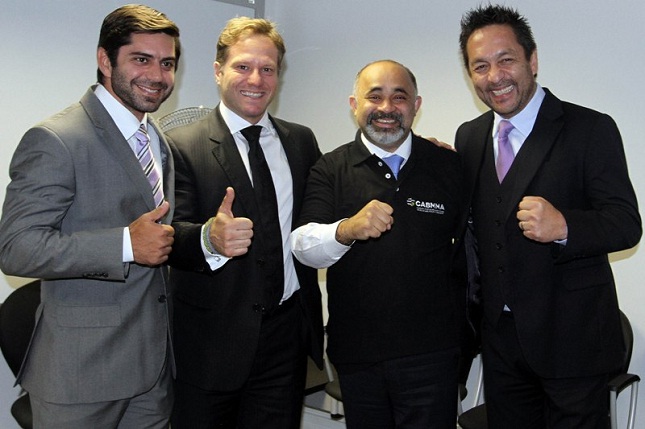

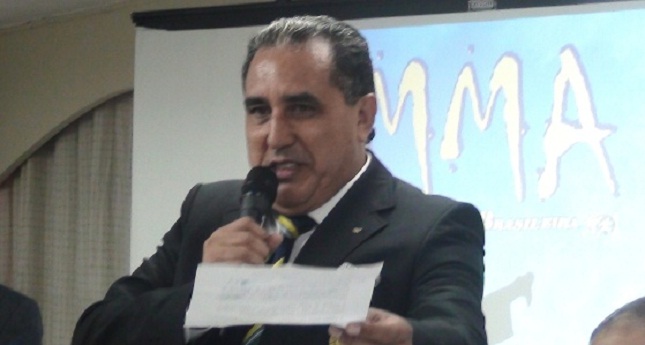
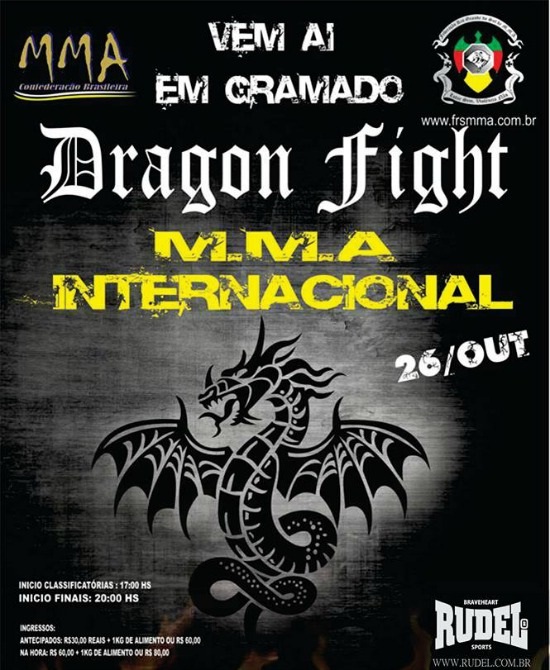
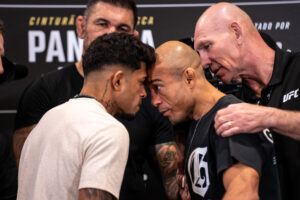

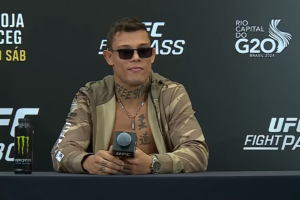
Comments